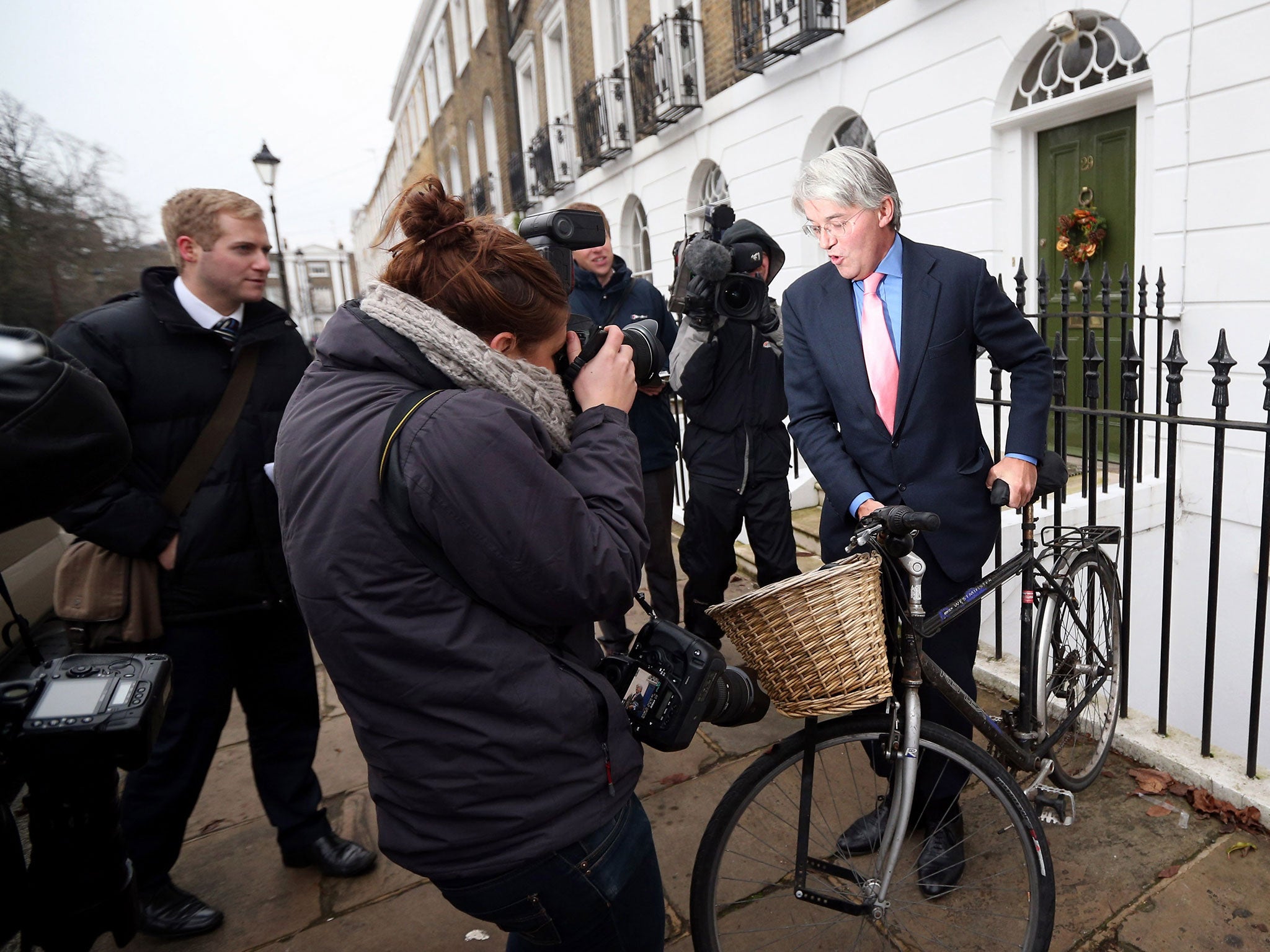Ian Burrell: As police and press come to blows, it will be investigative journalism and the public that lose out
The Media Column

Rarely has there been such loathing between the media and the police. And this less than two years after Lord Justice Leveson’s findings that liaisons between reporters and cops were dangerously cosy.
The deterioration of that relationship increased dramatically last week with the revelation that the Metropolitan Police had hacked into the phone records of The Sun’s news desk and the mobile of the paper’s political editor, Tom Newton Dunn.
That news followed an unseemly stand-off at the House of Commons between the Chief Constable of South Yorkshire Police, David Crompton, and the director-general of the BBC, Tony Hall, over the misconceived deal to cover the raid on Sir Cliff Richard’s home in Berkshire. Having gone in together – in scenes reminiscent of Apocalypse Now, as the BBC news chopper gave top cover to a fleet of patrol cars – the buddies in arms have become bitter enemies.
Mr Crompton ludicrously compared BBC News to the pre-Leveson tabloids, claiming that the broadcaster would have jeopardised the investigation. “I didn’t have that much faith that we could trust it wouldn’t be published,” he told MPs. “You only have to look at Leveson to find a number of examples, that were core to that particular inquiry, where the media decided to publish any way.” Lord Hall told him – quite plausibly after the Lord McAlpine fiasco – that the BBC would never have run the story if the police had warned them off.
Keith Vaz, chair of the Commons Home Affairs Committee, accused the force of “sheer incompetence”.
If only the same could be said of the Met’s operation against The Sun, where it drew on the Regulation of Investigatory Powers Act 2000 (Ripa), legislation introduced to fight terrorism, to force phone companies to hand over records that might reveal a reporter’s confidential sources.
This action has significant implications for investigative journalism as whistle-blowers realise that media assurances that their identity will be kept secret can be compromised by a simple police procedure which does not even require the authorisation of a judge – a nod from a superintendent makes a seizure of data under Ripa perfectly legal.
In this instance, there was no question of terrorism, just the embarrassment of police officers going to a newspaper over the “Plebgate” comments said to have been made by Andrew Mitchell, the Government’s former chief whip, at the entrance to Downing Street in 2012.
According to Mick Hume of online magazine Spiked, the Met’s actions form part of a wider post-Leveson process of “criminalising tabloid journalism”.
A survey by Press Gazette records that 63 journalists have been arrested and/or charged since the hacking scandal – including 25 from The Sun – and 28 are still awaiting trial.
The media continues to hold the police to account. The Guardian and Channel 4 News have revealed the double lives of undercover cops who infiltrated the green movement and attempted to smear the family of Stephen Lawrence. This newspaper has exposed the depth of Scotland Yard corruption related to the axe murder of private investigator Daniel Morgan in 1987.
But the police service is losing its traditional media supporters. The Sun, which for decades considered itself the paper most loyal to the British bobby, finds its phones hacked by the Yard and much of its newsroom on police bail.
“Things are pretty bad,” says John Twomey, chair of the Crime Reporters Association, a group of specialist professionals with long traditions of meeting police to discuss the nuances of the criminal justice system. The CRA last year scrapped its Christmas drinks party, citing a “mass snub” by officers who once attended in numbers.
There’s little prospect of a resumption of the old fixture between the Scotland Yard Select XI and a CRA team for whom The Sun’s veteran crime journalist Mike Sullivan played in goal (before being arrested and later cleared by the Yard’s Operation Elveden team investigating relations between the media and public officials).
Is this the thawing that Lord Justice Leveson wanted? It’s something for the former judge Sir Alan Moses to think about as he starts his work today as chairman of the Independent Press Standards Organisation, the regulator designed to signal a new era in British newspapers.
Subscribe to Independent Premium to bookmark this article
Want to bookmark your favourite articles and stories to read or reference later? Start your Independent Premium subscription today.

Join our commenting forum
Join thought-provoking conversations, follow other Independent readers and see their replies